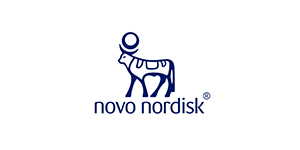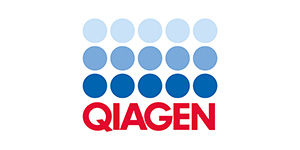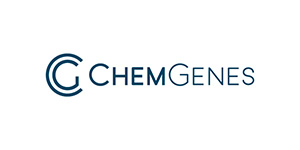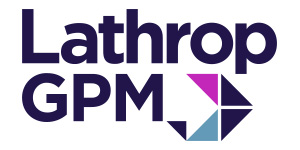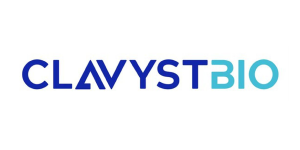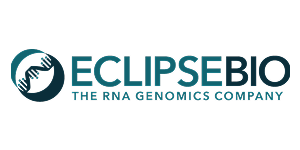- Need Technical Assistance? rnatx2025support@getvfairs.io
June 25, 2025 - June 27, 2025
Victor Ambros
Victor Ambros
Principal Investigator, Silverman Professor of Natural Sciences, Program in Molecular Medicine, UMass Chan Medical School
Victor Ambros earned his undergraduate degree in 1975, his doctorate in 1979 and completed his postdoctoral fellowship in 1983, all at the Massachusetts Institute of Technology. During graduate school, he worked with David Baltimore, PhD, a co-recipient of the 1975 Nobel Prize in Physiology or Medicine for discoveries related to the interaction between tumor viruses and genetic material of the cell. In Dr. Baltimore’s lab, Ambros studied the poliovirus genome structure and replication. Ambros then conducted his postdoctoral research in the lab of H. Robert Horvitz, who shared the 2002 Nobel Prize in Physiology or Medicine for his research related to genetic regulation of organ development and programmed cell death. Ambros’ research in Dr. Horvitz’s lab focused on genetic pathways that directed the developmental timing in C. elegans. After Ambros completed his fellowship, he continued his research as a faculty member at Harvard University (1984-1992), Dartmouth College and Dartmouth Medical School (1992-2008), and the University of Massachusetts Chan Medical School (2008-present).
Ambros was elected to the National Academy of Sciences in 2007 and the American Academy of Arts & Sciences in 2011. He has received numerous honors for his scientific achievements including the Lasker Award and the Gairdner Foundation International Award in 2008; the Dr. Paul Janssen Award for Biomedical Research in 2012; the Keio Medical Science Award in 2013; the Wolf Prize, Gruber Genetics Prize and Breakthrough Prize in Life Sciences (shared) in 2014; and the Prize in Developmental Biology from the March of Dimes (shared) in 2016. Ambros was awarded the 2024 Nobel Prize for Physiology or Medicine for his co-discovery of microRNA, short single-stranded RNA molecules that are now understood to play critical roles in post-transcriptional gene regulation.
In 2008, H. Scott Silverman and his father Jeffrey L. Silverman endowed the Silverman Chair in Natural Sciences at the University of Massachusetts Chan Medical School to honor Ambros. The endowment symbolizes the Silvermans’ enthusiasm for Ambros’ work and comes from a longtime friendship formed in 1997 when the younger Silverman completed his honors research thesis under Ambros’ guidance at Dartmouth College.
Howard Chang
Howard Chang
Senior Vice President, Research and Chief Scientific Officer, Amgen
Dr. Howard Y. Chang is senior vice president, Global Research, and chief scientific officer. He is responsible for leading all aspects of discovery research at Amgen.
Prior to joining Amgen, Dr. Chang led a research laboratory at Stanford University focused on deciphering regulatory information in the human genome for disease diagnosis and therapy. A physician-scientist and board-certified dermatologist, he served as Professor of Dermatology, Genetics, and Pathology at Stanford and Investigator of the Howard Hughes Medical Institute.
Dr. Chang is the winner of the Albany Prize, Lurie Prize in Biomedical Sciences, and NAS Award in Molecular Biology for discoveries of regulatory RNAs. He is an elected member of the National Academy of Sciences, National Academy of Medicine, and American Academy of Arts and Sciences. He is a serial entrepreneur having founded five biotech companies.
Dr. Chang holds a M.D. from Harvard Medical School, a Ph.D. in Biology from MIT, and an A.B. in Biochemical Sciences from Harvard University.
Luisa Cochella
Luisa Cochella
Associate Professor, Johns Hopkins University School of Medicine, Dept. of Molecular Biology and Genetics
Luisa Cochella grew up in Buenos Aires, Argentina. She obtained her Licenciatura (B.S.-Masters equivalent) in Biology from the Universidad de Buenos Aires and her PhD from Johns Hopkins University in Baltimore, where she conducted her thesis work in the lab of Dr. Rachel Green. For her postdoc, Luisa moved from studying fundamental aspects of protein synthesis, to using the worm C. elegans as a genetic system to study cell differentiation and development in the lab of Dr. Oliver Hobert at Columbia University in New York. Combining these two diverse trainings, Luisa started her independent group at the IMP in Vienna, Austria in 2013, with the goal to understand the basic gene regulatory mechanisms that drive the development of a multicellular organism. In 2021 the Cochella lab moved to Johns Hopkins School of Medicine, Department of Molecular Biology and Genetics. A large part of the Cochella lab focuses on the functions of microRNAs in animal development.
Luisa has been awarded an ERC Starting Grant, an NSF Career Award, she was an EMBO Young Investigator and was awarded the Elisa Izaurralde Award from the RNA Society in 2022.
Daniel Dominguez
Daniel Dominguez
Assistant Professor, Pharmacology, Member, Lineberger Comprehensive Cancer Center, UNC School of Medicine
Dr. Daniel Dominguez is an Assistant Professor in the Department of Pharmacology at the University of North Carolina at Chapel Hill. He earned his PhD at UNC Chapel Hill and completed postdoctoral training with Dr. Chris Burge at MIT.
His research focuses on RNA biology and gene regulation, particularly in the context of cancer and neurodegenerative disease. The Dominguez Lab investigates the molecular mechanisms of RNA-protein interactions and their regulatory consequences, using a multidisciplinary approach that combines computational biology, molecular biology, high-throughput biochemical assays, and animal models.
Previous work has included developing nuanced models of RNA-binding protein (RBP) specificity, examining the functional impact of RBP mutations, exploring the evolution of RNA-protein interactions, and uncovering mechanisms of alternative splicing in cancer and cell cycle regulation. The lab’s research is supported by the National Cancer Institute (NCI), the National Institute of General Medical Sciences (NIGMS), and the National Institute of Diabetes and Digestive and Kidney Diseases (NIDDK).
Marc Friedländer
Marc Friedländer
Associate Professor, Head of Quantitative RNA Biology Group, Stockholm University
Marc Friedländer undertook his undergraduate studies in bioinformatics at the University Copenhagen under the supervision of Anders Krogh and his PhD in Berlin under the supervision of Nikolaus Rajewsky - developing the miRDeep algorithm. As a PI and tenured associate professor, he has established the Quantitative RNA Biology lab at SciLifeLab/Stockholm University.
The group has recently developed agoTRIBE - the first method to experimentally map microRNA targets transcriptome-wide in single cells - and has discovered and profiled RNA fragments in historical and ancient animals, including the extinct Tasmanian tiger.
Richard Gregory
Richard Gregory Chair, Department of Molecular, Cell and Cancer Biology, UMass Chan Medical School
Richard I. Gregory. Ph.D. is Professor and Chair of the Department of Molecular, Cell, and Cancer Biology at UMass Chan Medical School. Prior to this he was the Department of Pediatrics Stem Cell Biology Chair in the Division of Hematology/Oncology at Boston Children’s Hospital, Professor in the Department of Biological Chemistry and Molecular Pharmacology,
at Harvard Medical School (HMS), and Co-Director, of the HMS Initiative for RNA Medicine. He received a Ph.D. from Cambridge University for his research performed at the Babraham Institute. He did postdoctoral work at the Fox Chase Cancer Center and the Wistar Institute, Philadelphia. His research focuses on understanding molecular and cellular mechanisms of RNA regulation and the relevance of these pathways in stem cell biology, development, and human diseases including cancer. Most recently, his lab has been focused on the role of RNA modifications – the epitranscriptome, in cancer biology. Notably, they identified oncogenic roles for the mRNA methyltransferase (MTase) METTL3 and the tRNA MTase METTL1 in numerous cancer types. Their work is supported by an outstanding investigator award from the National Cancer Institute.
Scientific accomplishments have been published broadly in major journals, such as Nature, Cell and Science, and include pioneering studies that:
Athma Pai
Athma Pai
Associate Professor, RNA Therapeutics Institute, UMass Chan Medical School
Athma Pai is an RNA systems geneticist working at the interface of RNA biology, functional genomics, and computational biology. Athma received her Ph.D. in Human Genetics from the University of Chicago, completed a Jane Coffin Childs postdoctoral fellowship in the Department of Biology at MIT, and assumed her current position as an Assistant Professor in the RNA Therapeutics Institute at the University of Massachusetts Chan Medical School in January 2018. Her lab works on developing and applying methods to study the kinetics of RNA processing and understanding how various steps in RNA maturation are efficiently coordinated through the lifecycle of an RNA molecule. Her work has been recognized with professional awards and grants such as the NIH Maximizing Investigators Research Award, NSF CAREER Award, and the UMass Chan Early Career Achievement in Science and Health Award.
Hailing Jin
Hailing Jin
Professor & Cy Mouradick Endowed Chair, Department of Microbiology & Plant Pathology, University of California, Riverside
Dr. Hailing Jin is a Cy Mouradick Chair Professor in the Department of Microbiology & Plant Pathology at the University of California, Riverside, USA. Her research focuses on the roles of RNAs, epigenetics, and antimicrobial peptides in plant-microbe interactions, with the aim of developing innovative and eco-friendly strategies for crop protection against fungal and bacterial pathogens. Her lab discovered cross-kingdom RNA communication between plants and pathogens. They have also demonstrated the crucial role of extracellular vesicles in this process. Additionally, her lab found that many fungal pathogens can efficiently take up RNAs and vesicles from the environment, providing the essential basis for the development of spray-induced gene silencing techniques for crop protection.
Dr. Jin earned her PhD from the Shanghai Institute of Plant Physiology & Ecology, Chinese Academy of Sciences, and completed her postdoctoral training at the John Innes Centre, UK and the University of California, Berkeley. She has published a total of 115 peer-reviewed papers and has an H-index of 65. Dr. Jin is a Senior Member of the National Academy of Inventors (NAI), a Fellow of the American Association for the Advancement of Science (AAAS), a Fellow of the American Academy of Microbiology (AAM), a Fellow of the American Phytopathological Society (APS), and a CIFAR Fellow of the Canadian Institute for Advanced Research. She was recognized as a Highly Cited Researcher by Web of Science. She was recently elected to National Academy of Sciences (NAS) in 2025.
Alisha "Jonesy" Jones
Alisha "Jonesy" Jones Assistant Professor of Chemistry, James Weldon Johnson Professor, Department of Chemistry, New York University
Dr. Alisha ‘Jonesy’ Jones, one of C&EN News 2024 Talented Twelve, is a James Weldon Johnson Assistant Professor of Chemistry at New York University in the Department of Chemistry. Jonesy was a postdoctoral researcher in the lab of Dr. Michael Sattler in Munich, Germany, and earned her PhD in Chemistry in the lab of Dr. Gabriele Varani at the University of Washington.
Research in the Jones Lab focuses on investigating the structural dynamics of long noncoding RNAs (lncRNAs) and how they are linked to specific biological processes. Her team deploys a combination of biophysical, biochemical, and computational techniques to study how lncRNAs transition between various structured states and how they interact with other biomolecules. Considering that lncRNAs are critical regulators of gene expression, her lab’s work has the potential to increase overall knowledge regarding lncRNA structure-function relationships, and offers a starting point for therapeutically targeting lncRNAs when they are implicated in a disease.
Raghu Kalluri
Raghu Kalluri Professor and Chair, Department of Cancer Biology, Frederick Becker Distinguished University Chair, UT MD Anderson Cancer Center
Raghu Kalluri is a Professor and Chairman of the Department of Cancer Biology at the University of Texas MD Anderson Cancer Center. He is a CPRIT Established Investigator and holds the Frederick F. Becker Distinguished University Chair of Cancer Research. Dr. Kalluri’s research program is focused on innovative research to unravel how cells and their environment communicate to maintain organ health, and how such communication networks are altered in cancer and other diseases. Current areas of research in the laboratory include cancer biology and metastasis, tumor microenvironment, tissue injury and regeneration, aging, and the biology of exosomes in health and disease.
Dr. Kalluri's research is translationally focused, with an implicit mission to develop new strategies for diagnosis and therapy. To date, his discoveries have been translated into nine successful clinical studies and Phase I clinical trials for kidney diseases, fibrosis and cancer, and led to the creation of six biotechnology companies using intellectual property generated in the Kalluri laboratory. Dr. Kalluri has been recognized for his excellence in research and teaching and the Kalluri laboratory is a fertile training ground for the next generation of scientists and physician-scientists. He has mentored over 300 research trainees during the past three decades and led numerous education and training programs as Director or co-Director at both Harvard and MD Anderson Cancer Center. Training successful researchers is one of Dr. Kalluri’s core commitments for which he takes immense pride.
Dr. Kalluri’s research achievements have been acknowledged in the form of several distinguished awards. He received the 2015 Jacob Henle Medal for Excellence in Medicine and the 2016 Ruth Leff Siegel Award for Excellence in Pancreatic Cancer Research. Kalluri has been funded by the NIH continuously for 29 years and, in 2022, he received the prestigious NCI Outstanding Investigator Award. In 2023, he was conferred with The Dallas/Fort Worth Living Legend Faculty Achievement Award in Basic Research. Dr. Kalluri is a Fellow of the American Society for Clinical Investigation, The American Association for the Advancement of Science, and the Association of American Physicians.
Narry Kim
Narry Kim
Director, Center for RNA Research, Institute for Basic Science & Seoul National University
Narry Kim is a Professor in the School of Biological Sciences at Seoul National University and a founding Director of the RNA Research Center at Institute for Basic Science (IBS). Kim graduated from Seoul National University in 1992 and received her Ph.D. in 1998 from the University of Oxford where she studied lentiviruses and gene delivery. For postdoctoral training, she joined the Gideon Dreyfuss lab at the University of Pennsylvania to study mRNA surveillance. Kim moved back to Seoul National University in 2001 to set up her own group and has been investigating how genes are regulated at the RNA level.
The Kim lab delineated the microRNA pathway, identified key factors including DROSHA, and revealed their action mechanisms and structures. Her group also uncovered the roles of noncanonical RNA tailing such as uridylation and mixed tailing in the control of microRNAs, mRNAs, and viral RNAs. She is a recipient of the L’Oreal-UNESCO Women in Science Award, the Hoam Prize, and the Asan Prize; was elected members of KAS, NAS, EMBO, and the Royal Society; and serves on the editorial boards of Science, Cell, Molecular Cell, GD, and EMBO J.
Alexis Komar
Alexis Komar
Associate Professor, Department of Chemistry and Biochemistry, University of California, Berkeley
Alexis received her B. S. degree in chemistry from the University of California, Berkeley in December of 2008. She then joined the lab of Jacqueline K. Barton at the California Institute of Technology for her doctoral studies. While at Caltech, she worked as an NSF Graduate Research Fellow on the design, synthesis, and study of DNA mismatch-binding metal complexes and received her Ph.D. in 2014.
She pursued postdoctoral work as a Ruth L. Kirschstein NIH Postdoctoral Fellow in the laboratory of David R. Liu, where she developed base editing. Alexis joined the Department of Chemistry and Biochemistry at the University of California at San Diego in 2017, where her lab develops and applies new precision genome editing techniques to the functional genomics field.
Alexis’s contributions in teaching, mentoring, and research have been recognized through many awards, including the Cottrell Scholar Award, the “Talented 12” recognition by C&EN News, an NSF Faculty Early Career Development (CAREER) award, an NIH early stage investigator Maximizing Investigators’ Research Award (MIRA), and a “40 under 40” recognition in healthcare by Fortune Magazine.
Mano Manoharan
Mano Manoharan
Senior Vice President of Drug Innovation, Distinguished Research Scientist, Alnylam
Dr. Muthiah (Mano) Manoharan serves as a Senior Vice President of Drug Innovation, a Scientific Advisory Board Member, and a Distinguished Research Scientist at Alnylam Pharmaceuticals, Cambridge, Massachusetts, USA. In 2003, he was the first chemist hired at Alnylam and built the Drug Discovery team at Alnylam. He and his team pioneered the discovery and development of the chemical modifications that make RNA interference-based human therapeutics possible. This work led to ONPATTRO (patisiran), the first RNAi therapeutic approved by FDA in 2018 for treating TTR amyloidosis mediated polyneuropathy. Dr. Manoharan has had a distinguished career as a world-leading chemist in the areas of oligonucleotide chemical modifications, conjugation chemistry, and delivery platforms (lipid nanoparticles, polymer conjugates, and complex-forming strategies).
Dr. Manoharan and his research group designed, synthesized and demonstrated for the first time the human therapeutic applications of GalNAc-conjugated oligonucleotides at Alnylam, a platform that has revolutionized the RNA therapeutics field with several compounds presently in the advanced clinical trials. The very first GalNAc-siRNA conjugate among them, GIVLAARI (givosiran), for the treatment of acute hepatic porphyria (AHP) has been approved by FDA very recently (November 2019). He is an author of more than 215 publications (nearly 44,500 Google Scholar citations with an h-index of 97 and an i10-index of 375) and over 400 abstracts, as well as an inventor of over 240 issued U.S. patents. Prior to Alnylam, Dr. Manoharan worked at Ionis (formerly Isis) Pharmaceuticals (1990-2003; Carbohydrate modifications like 2’-O-MOE and Conjugates) and LifeCodes Corporation (1988-1990) in the field of antisense oligonucleotide therapeutics.
Alfica Sehgal
Alfica Sehgal
Chief Scientific Officer, Judo Bio
Alfica Sehgal, PhD is the CSO of Judo Bio working on oligos for therapeutic intervention. Over the years, she has held multiple leadership positions at CAMP4 therapeutics and Alnylam Pharmaceuticals, spanning from early discovery, new target search, platform biology, improvising delivery, and leading programs to the clinic. Her experience spans rare liver diseases like Alpha-1 antitrypsin deficiency (Belcesiran), Bleeding disorders (Fitusiran); urea cycle disorders; kidney disease, neurodegenerative and neurodevelopment disorders. She graduated from Tata Institute of Fundamental Research (TIFR), Mumbai; received her post-doctoral training at Johns Hopkins and Yale University, studying lipid uptake, cholesterol and oxygen homeostasis in parasites, mammalian cells and mice. She has authored more than 60 articles and patents across various disease areas and technologies.
Daniel Siegwart
Daniel Siegwart
W. Ray Wallace Distinguished Chair in Molecular Oncology Research and Professor, University of Texas Southwestern Medical Center
Daniel J. Siegwart is a Professor in the Department of Biomedical Engineering, Department of Biochemistry, and the Simmons Comprehensive Cancer Center (SCCC) at the University of Texas Southwestern Medical Center. He holds the W. Ray Wallace Distinguished Chair in Molecular Oncology Research and serves as the Director of the Program in Genetic Drug Engineering, Director of the Drug Delivery Program in Biomedical Engineering, and Co-leader of the Chemistry and Cancer Program in the NCI-designated SCCC. He received a B.S. in Biochemistry from Lehigh University (2003), and a Ph.D. in Chemistry from Carnegie Mellon University (2008), studying with Professor Krzysztof Matyjaszewski.
He also studied as an NSF EAPSI Research Fellow at the University of Tokyo with Professor Kazunori Kataoka (2006). He then completed an NIH NSRA Postdoctoral Fellowship at MIT with Professor Robert Langer (2008-2012). He has received awards including a CPRIT Scholar Award, an American Cancer Society Research Scholar Award, the Young Innovator Award in Nanobiotechnology, Biomaterials Science Emerging Investigator Award, and election to the Controlled Release Society (CRS) College of Fellows and the American Institute for Medical and Biological Engineering (AIMBE) College of Fellows. His research laboratory utilizes materials chemistry to enable targeted nanoparticle delivery of genomic medicines.
Their efforts led to an understanding of the essential physical and chemical properties of synthetic carriers required for therapeutic delivery of siRNA, miRNA, tRNA, pDNA, mRNA, and gene editors. His lab has been at the forefront in the design of synthetic carriers for gene editing and has applied these technologies for correction of genetic diseases and treatment of cancer. They reported the first non-viral system for in vivo CRISPR/Cas gene editing. They developed Selective ORgan Targeting (SORT) lipid nanoparticles (LNPs), which was the first strategy for predictable tissue specific mRNA delivery and gene editing. They ultimately aspire to utilize chemistry and engineering to make a beneficial impact on human health.
 June 25, 2025 10:00 am
June 25, 2025 10:00 am
(Career workshop participants register by 12:45pm)
 June 25, 2025 01:00 pm
June 25, 2025 01:00 pm
Sponsored by

 June 25, 2025 02:40 pm
June 25, 2025 02:40 pm
Phillip D. Zamore
HHMI, RTI, UMass Chan Medical School

 June 25, 2025 02:45 pm
June 25, 2025 02:45 pm
Narry Kim
Director, Center for RNA Research, Institute for Basic Science & Seoul National University

 June 25, 2025 03:40 pm
June 25, 2025 03:40 pm
Session Chair: Theodore Carrigan-Broda, RTI, UMass Chan
 June 25, 2025 04:15 pm
June 25, 2025 04:15 pm

 June 26, 2025 07:45 am
June 26, 2025 07:45 am
Sponsored by

 June 26, 2025 08:50 am
June 26, 2025 08:50 am
Phillip D. Zamore
HHMI, RTI, UMass Chan Medical School

 June 26, 2025 08:55 am
June 26, 2025 08:55 am
Session Chairs: Samantha Ho & Haoyang Cheng, RTI, UMass Chan
 June 26, 2025 08:55 am
June 26, 2025 08:55 am
Victor Ambros
Principal Investigator, Silverman Professor of Natural Sciences, Program in Molecular Medicine, UMass Chan Medical School

 June 26, 2025 09:25 am
June 26, 2025 09:25 am
Luisa Cochella
Associate Professor, Johns Hopkins University School of Medicine, Dept. of Molecular Biology and Genetics

 June 26, 2025 09:55 am
June 26, 2025 09:55 am
Alisha “Jonesy” Jones
Assistant Professor of Chemistry, James Weldon Johnson Professor, Department of Chemistry, New York University

 June 26, 2025 10:25 am
June 26, 2025 10:25 am
Wendy Tan
Doctoral Student, RTI, UMass Chan Medical School

 June 26, 2025 10:35 am
June 26, 2025 10:35 am
Disha Kashyap
Doctoral Student, Oxford University

Michael Spellberg
Partner, Lathrop GPM

 June 26, 2025 10:40 am
June 26, 2025 10:40 am
Sponsored by

 June 26, 2025 11:15 am
June 26, 2025 11:15 am
Session Chairs: William Cruz & Min Zhang, RTI, UMass Chan
 June 26, 2025 11:15 am
June 26, 2025 11:15 am
Athma Pai
Associate Professor, RNA Therapeutics Institute, UMass Chan Medical School

 June 26, 2025 11:45 am
June 26, 2025 11:45 am
Richard Gregory
Chair, Department of Molecular, Cell and Cancer Biology, UMass Chan Medical School

 June 26, 2025 12:15 pm
June 26, 2025 12:15 pm
Ryan Flynn
Assistant Professor, Boston Children’s Hospital, Harvard Medical School

 June 26, 2025 12:30 pm
June 26, 2025 12:30 pm
Grace Lee
Doctoral Student, University of Pennsylvania

 June 26, 2025 12:45 pm
June 26, 2025 12:45 pm
Sponsored by

 June 26, 2025 01:45 pm
June 26, 2025 01:45 pm
Sponsored by

 June 26, 2025 03:30 pm
June 26, 2025 03:30 pm
Session Chairs: Marina Krykbaeva & Valeria Sanabria, RTI, UMass Chan
 June 26, 2025 03:30 pm
June 26, 2025 03:30 pm
Hailing Jin
Professor & Cy Mouradick Endowed Chair, Department of Microbiology & Plant Pathology, University of California, Riverside

 June 26, 2025 04:00 pm
June 26, 2025 04:00 pm
Marc Friedländer
Associate Professor, Head of Quantitative RNA Biology Group, Stockholm University

 June 26, 2025 04:30 pm
June 26, 2025 04:30 pm
Luca Ducoli
Postdoctoral Scholar, Stanford University

 June 26, 2025 04:45 pm
June 26, 2025 04:45 pm
Ariane Mandlbauer
Doctoral Student, Johns Hopkins School of Medicine

 June 26, 2025 05:00 pm
June 26, 2025 05:00 pm
He Zhang
CTO, Raina Biosciences

 June 26, 2025 06:00 pm
June 26, 2025 06:00 pm
Ticket Required. Sponsored by

 June 27, 2025 07:45 am
June 27, 2025 07:45 am
Sponsored by

 June 27, 2025 08:40 am
June 27, 2025 08:40 am
Session Chairs: Thomas Ormsby & Matt Yee, RTI, UMass Chan
 June 27, 2025 08:45 am
June 27, 2025 08:45 am
Daniel Siegwart
W. Ray Wallace Distinguished Chair in Molecular Oncology Research and Professor, University of Texas Southwestern Medical Center

 June 27, 2025 09:15 am
June 27, 2025 09:15 am
Daniel Dominguez
Assistant Professor, Pharmacology, Member, Lineberger Comprehensive Cancer Center, UNC School of Medicine

 June 27, 2025 09:40 am
June 27, 2025 09:40 am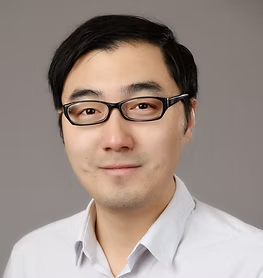
Dr. Wen Zhang
Assistant Professor, Indiana University School of Medicine

 June 27, 2025 09:55 am
June 27, 2025 09:55 am
Raghu Kalluri
Professor and Chair, Department of Cancer Biology, Frederick Becker Distinguished University Chair, UT MD Anderson Cancer Center

 June 27, 2025 10:20 am
June 27, 2025 10:20 am
Sponsored by

 June 27, 2025 10:50 am
June 27, 2025 10:50 am
Session Chairs: Anis Barati & Daniel MacVeigh-Fierro, RTI, UMass Chan
 June 27, 2025 10:55 am
June 27, 2025 10:55 am
Alexis Komor
Associate Professor, Department of Chemistry and Biochemistry, University of California, Berkeley

 June 27, 2025 11:25 am
June 27, 2025 11:25 am
Genliang Lu
Senior Director of Medical Chemistry, Wave Life Sciences

 June 27, 2025 11:40 am
June 27, 2025 11:40 am
Sarah Pierce
Broad Institute

 June 27, 2025 11:55 am
June 27, 2025 11:55 am
Leifu Chang
Associate Professor, Purdue University.

 June 27, 2025 12:10 pm
June 27, 2025 12:10 pm
Xiao Wang
Research Assistant Professor, University of Pennsylvania

 June 27, 2025 12:20 pm
June 27, 2025 12:20 pm
Disha Kashyap
Doctoral Student, Oxford University

Michael Spellberg
Partner, Lathrop GPM

 June 27, 2025 12:25 pm
June 27, 2025 12:25 pm
Sponsored by

 June 27, 2025 01:15 pm
June 27, 2025 01:15 pm
Sponsored by

 June 27, 2025 02:40 pm
June 27, 2025 02:40 pm
Session Chairs: Annie Collins & Emily Knox, RTI, UMass Chan
 June 27, 2025 02:45 pm
June 27, 2025 02:45 pm
Alfica Sehgal
Chief Scientific Officer, Judo Bio

 June 27, 2025 03:15 pm
June 27, 2025 03:15 pm
Urmila Jagtap
Postdoctoral Fellow, Beth Israel Deaconess, Harvard Medical School

 June 27, 2025 03:30 pm
June 27, 2025 03:30 pm
Howard Chang
Senior Vice President, Research and Chief Scientific Officer, Amgen

 June 27, 2025 04:00 pm
June 27, 2025 04:00 pm
Eric Vallabh Minikel
Co - leads the initiative to develop preventive drugs for prion disease at the Broad Institute of MIT and Harvard.

 June 27, 2025 04:15 pm
June 27, 2025 04:15 pm
Jon Dempersmier
Senior Scientist, Rgenta Therapeutics Inc.

 June 27, 2025 04:30 pm
June 27, 2025 04:30 pm
Chunyang Zhang
Director of Biology, Sanegene Bio

 June 27, 2025 04:45 pm
June 27, 2025 04:45 pm
Mano Manoharan
Senior Vice President of Drug Innovation, Scientific Advisory Board Member ,Distinguished Research Scientist at Alnylam Pharmaceuticals.

 June 27, 2025 05:35 pm
June 27, 2025 05:35 pm












